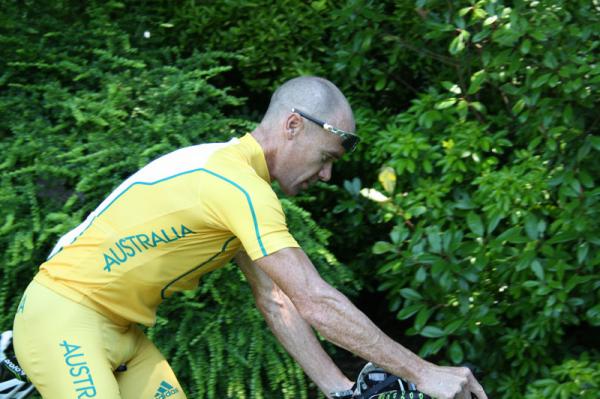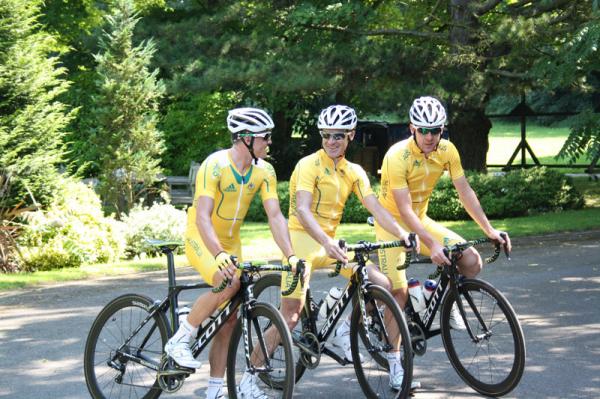O'Grady rises to Olympic challenge
Australian 6th in London


Competing in his sixth and final Olympic Games, Australia's Stuart O'Grady capped off a long day in the saddle with 6th place in the men's road race.
The 38-year-old formed part of a 12-man break in the opening stages of the 250 kilometre race, and despite the group swelling to 33 before the finish, the Australian ended the day as his country's top finisher.
O'Grady's hope of a gold or silver medal were cut short when Alexandre Vinokourov (Kazakhstan) and Rigoberto Uran (Colombia) escaped from the field within the final 5 kilometres, leaving O'Grady to scrap for the bronze medal.
"I could see Vino go and the head was saying 'go' but the legs were saying ‘mate, you've done 220 kilometres out here’ and I was on the verge of cramping with every pedal stroke. I just had to put everything in the final sprint," he said at the finish.
"Obviously, from the team point of view we've not come here to get a top ten but personally that was one of the rides of my life. I knew today was going to be my last Olympic appearance and I wanted to go all in. The people of London out there today, that was the most incredible moment I've ever had in my life," O'Grady added.
Australia came into the race promising to race aggressively. With O'Grady in the break Michael Rogers attempted to bridge across. The move failed with Rogers drawn back by a persistent chase led from Great Britain. In the closing stages, Australia were either unwilling or unable to help lead the chase, something Matthew Goss attributed to O'Grady's presence in the break. Michael Rogers told Cyclingnews at the finish that there was little chase Australia chasing when they had their second fastest sprinter on the attack.
"We had a little information system set up on the climb and that gave me a couple of laps when I could chill out and obviously all the guys were asking why I wasn't working and I had to tell them Mick was coming across but it was a five minute margin and it was going to be pretty difficult and the other teams behind weren't keen on letting another Australian go out front. They knew our tactic," O'Grady added.
Get The Leadout Newsletter
The latest race content, interviews, features, reviews and expert buying guides, direct to your inbox!
The Australian team's unwillingness to chase O'Grady flared up at the finish with Mark Cavendish questioning their approach. O'Grady added that race radios and smaller teams of five had set the tone for the majority of the race action but gently reminded the listening press that no team were going to gift Cavendish with an easier ride.
"It's like one day cricket and test cricket, it's two completely different games. You've got the Great Britain team saying they've pre-written the history books before this race, so of course who wants to come to the finish with Cav? Everyone has the occasion to get a result for themselves in the Olympics, which a lot of the smaller countries, and domestique guys don't get very often, so it was the rest of the world versus Cav and Great Britain. They can calculate and do statistics, and whatever, but at the end of the day it's a bike race. You get the right combination of guys out in front and it doesn't matter who you've got behind, it's going to be very hard to bring back but that's the gamble they took. That's bike racing, that's why we love it."
Daniel Benson was the Editor in Chief at Cyclingnews.com between 2008 and 2022. Based in the UK, he joined the Cyclingnews team in 2008 as the site's first UK-based Managing Editor. In that time, he reported on over a dozen editions of the Tour de France, several World Championships, the Tour Down Under, Spring Classics, and the London 2012 Olympic Games. With the help of the excellent editorial team, he ran the coverage on Cyclingnews and has interviewed leading figures in the sport including UCI Presidents and Tour de France winners.
